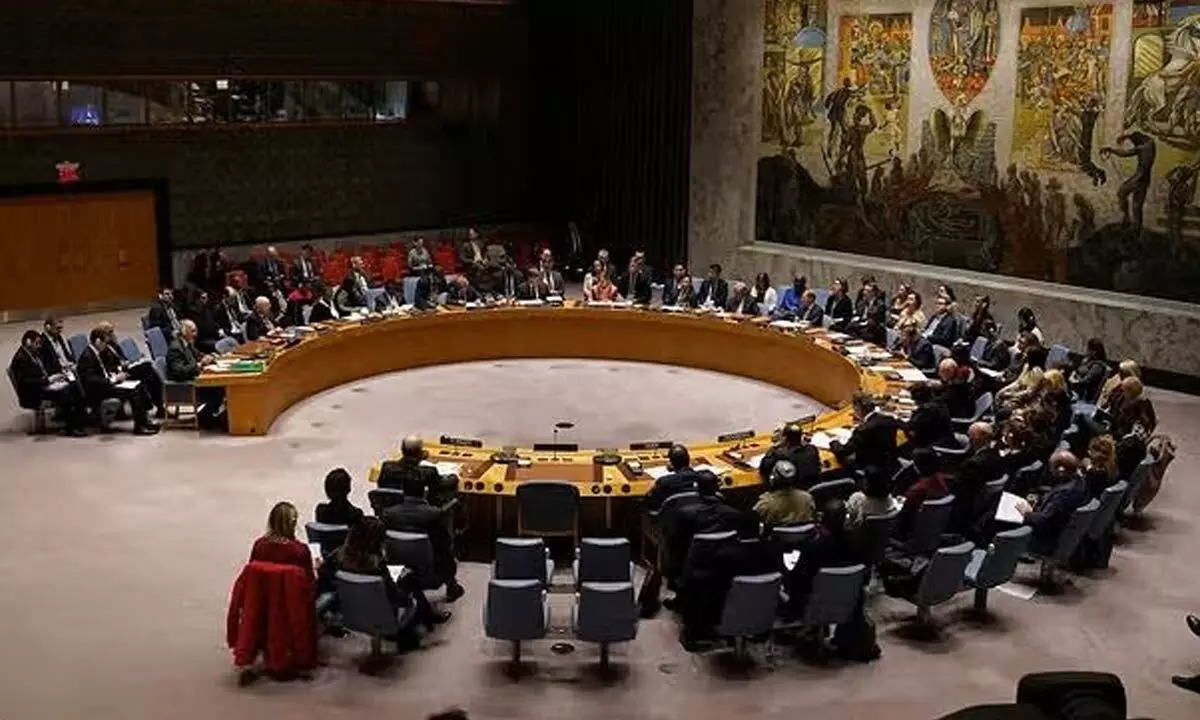
The Pahalgam terror attack, which resulted in the tragic death of 26 civilians, has triggered a sharp escalation in hostilities between India and Pakistan. In response, the United Nations Security Council (UNSC) convened closed-door consultations on Monday to assess the worsening situation in South Asia.
UNSC Holds Special Meeting on Pahalgam Terror Attack

Called at Pakistan’s request, the UNSC meeting lasted 90 minutes and was aimed at discussing the “deteriorating security environment.” The council did not issue an official statement following the consultations, which did not take place at the traditional horseshoe table.
Pakistan’s envoy, Asim Iftikhar Ahmad, said the primary objective was to allow members to deliberate on rising tensions. Assistant Secretary-General Khaled Mohamed Khiari confirmed that calls were made for “dialogue and peaceful resolution.”
UN Diplomats Call for Restraint and De-escalation
Envoys from various nations reacted to the Pahalgam terror attack by urging calm. Evangelos Sekeris of Greece, the UNSC President for May, called it a “productive” session. A Russian diplomat, speaking anonymously, expressed hope for “de-escalation.”
UN Chief Guterres Strongly Condemns Pahalgam Terror Attack

UN Secretary-General António Guterres condemned the Pahalgam terror attack in strong terms. “Targeting civilians is unacceptable,” he stated, calling for the perpetrators to be held accountable through lawful means. He urged both countries to step back from the brink, warning that “a military solution is no solution.”
India’s Response to the Pahalgam Terror Attack
Prime Minister Narendra Modi vowed that the attackers will be brought to justice. In retaliation, India has:
- Suspended the Indus Waters Treaty
- Shut down visa services to Pakistan
- Closed Indian airspace for Pakistani flights
India suspects cross-border involvement in the Pahalgam terror attack, while Pakistan has called for an independent international investigation.
The United Nations Security Council has discussed rising tensions between India and Pakistan at closed-door consultations where envoys called for de-escalation and dialogue. The 15-member UNSC did not issue a statement after the meeting but Pakistan claimed that its own objectives were “largely served”.
Also, UN chief António Guterres condemned the Pahalgam attack and he said perpetrators must be brought to justice. Urging both India and Pakistan to avoid military confrontation, he said, “make no mistake, a military solution is no solution, and I offer my good offices to both governments in the service at peace.” The UN Security Council commenced closed-door consultations on the situation between India and Pakistan, hours after Secretary General Antonio Guterres voiced concern over tensions between the nuclear-armed neighbours being “at their highest in years”.
The MHA has asked several states to conduct mock drills for effective civil defence on 7th May. The measures to be taken during the drill include operationalisation of air raid warning sirens, updation of evacuation plan & its rehearsal and training of civilians on civil defence aspects, government sources said. The Delhi government is likely to hold a meeting to discuss preparations for mock drills, following a directive from the Union Ministry of Home Affairs (MHA) to the States to conduct them on Wednesday (May 7, 2025) amid rising tensions with Pakistan following the Pahalgam terror attack.
The Indian Army on Monday (May 5, 2025) said that multiple locations Jammu and Kashmir along the Line of Control (LoC) have come under small arms fire from the Pakistani Army. Pakistan’s Defence Minister Khawaja Asif on Monday warned that India could carry out a military strike at any moment along the Line of Control in Kashmir.
Pakistan Warns of Possible Indian Military Response
Several Pakistani ministers have warned that India may launch a military strike in response. Tensions remain high, and the UNSC’s call for diplomacy is being closely monitored by global powers.